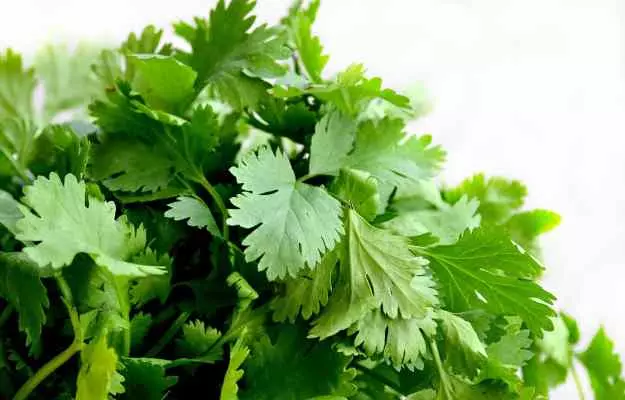Coriander or cilantro is an annual herb that has widespread use in traditional Indian cuisine. A good source of dietary fibre, Coriandrum sativum has immense medicinal value as well. Different civilizations have been using coriander as a traditional remedy and flavouring agent. Coriander plant as a whole is a rich source of lipids such as petroselinic acid and essential oils.
Native to the regions of Southern Europe, and Northern and Southwestern Africa, the coriander plant is a soft herb, usually about 50 cm in height. The leaves of this plant are variable in shape; though they are usually broad lobed at the base and thin and feathery towards the outer edges. In Ayurveda, coriander has been highly appreciated as a trishodic (provides three benefits) spice by increasing appetite, aiding in digestion and fighting infections.
Research suggests that coriander plant is loaded with biologically active compounds that impart it with several therapeutic properties such as anti-diabetic, anti-oxidant, anti-microbial, anti-epileptic (prevents epilepsy), anti-depressant, anti-inflammatory (reduces swelling), anti-dyslipidemic (lowers blood lipids as cholesterol and triglycerides), neuroprotective (protects memory cells), anti-hypertensive (lowers blood pressure) and diuretic (increases urination).
Some Basic Facts About Coriander
- Botanical Name: Coriandrum sativum
- Family: Apiaceae
- Common Name: Coriander, cilantro, Chinese parsley
- Sanskrit Name: Dhaniya
- Parts Used: Leaves, Stem, Seeds
- Geographical Distribution: Southern Europe, Northern Africa, Southwestern Africa















